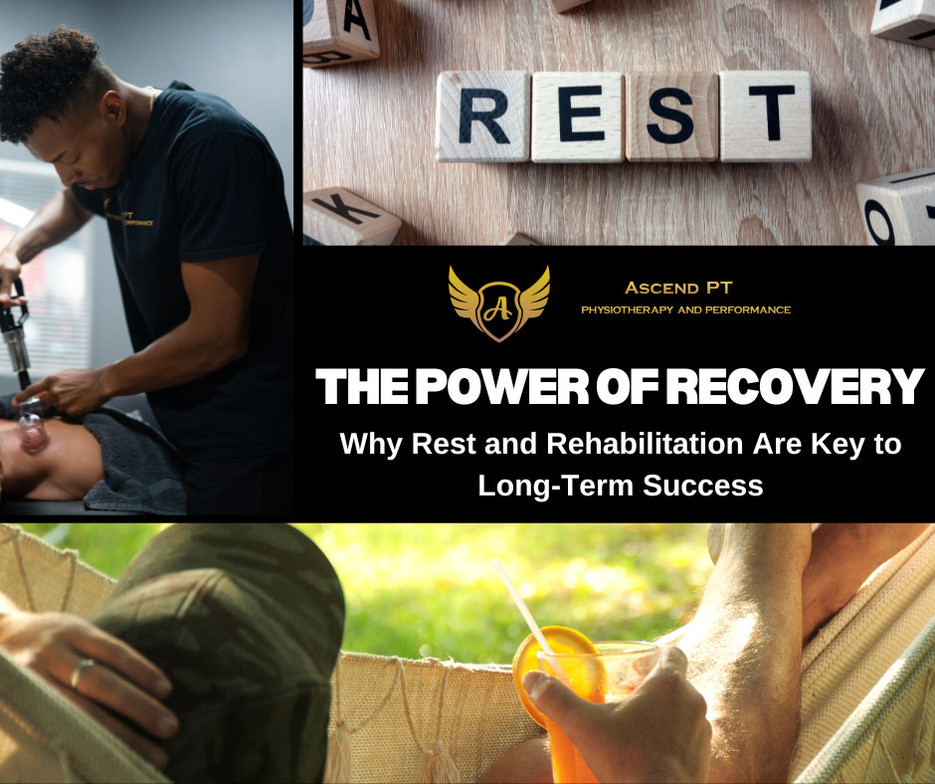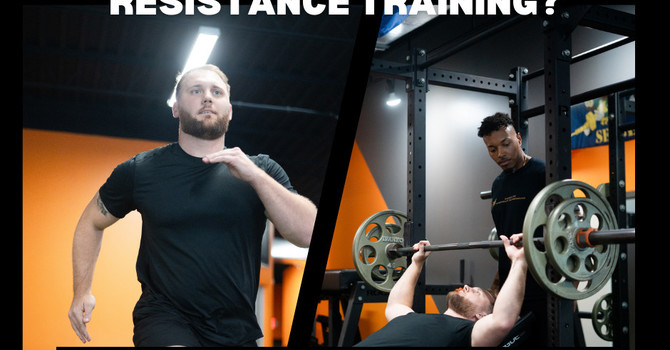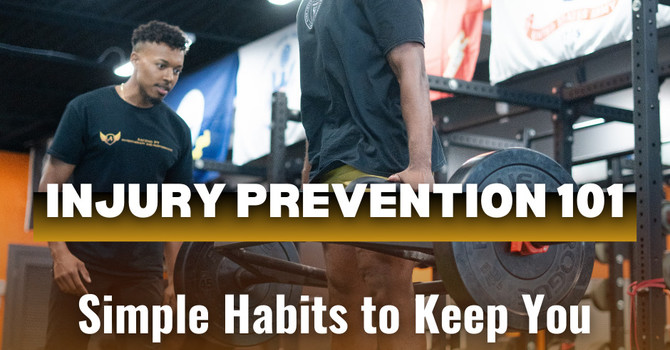
In the pursuit of health and fitness goals, most people focus intently on pushing their limits—working harder, lifting heavier, and running faster. While this mindset is essential for improvement, there is an equally important component often neglected: recovery. Rest and proper rehabilitation are the foundations for sustained success in fitness and health. At Ascend PT Physiotherapy and Performance, we believe that recovery is not just a passive process but a critical part of an athlete's or active individual's long-term performance.
Why Is Recovery Essential?
Recovery is the body’s process of healing and rebuilding after physical exertion. It’s the period when muscles repair, grow stronger, and adapt to stress, allowing for improved performance. Without adequate recovery, the body struggles to repair the microscopic tears in muscles, leading to fatigue, decreased performance, and potential injury.
There are several key reasons recovery is essential for anyone pursuing long-term fitness success:
1. Prevention of Overuse Injuries
When muscles, joints, and connective tissues are repeatedly strained without proper recovery, they become more susceptible to overuse injuries such as tendinitis, stress fractures, or muscle strains. Ascend PT Physiotherapy and Performance specializes in injury prevention by helping clients incorporate structured recovery into their routines, reducing the likelihood of these common issues.
2. Enhancing Muscle Repair and Growth
Strength and endurance improve when muscles adapt to the stress placed on them. However, muscle fibers need time to repair after intense activity. Without rest, the body doesn’t get the opportunity to rebuild stronger tissue, stunting potential progress. This is why recovery days, including rest, stretching, and low-impact activities, are vital to any effective fitness program.
3. Restoring Energy Levels and Reducing Fatigue
After prolonged physical activity, the body depletes its glycogen (stored energy) and needs time to replenish it. Failing to recover appropriately can lead to chronic fatigue, mental burnout, and even diminished immune function. Ascend PT Physiotherapy and Performance encourages clients to monitor their energy levels and recognize when they need to rest to avoid these pitfalls.
4. Mental Recovery
Physical fitness doesn’t just challenge the body—it can take a mental toll as well. Consistent high-intensity training without adequate mental breaks can lead to burnout and demotivation. Rest and rehabilitation can help alleviate stress, allowing the mind to recharge and refocus.
The Role of Rehabilitation in Recovery
Rest is only one part of the equation; rehabilitation is equally critical. Whether recovering from an injury or working through chronic pain, rehabilitation allows individuals to restore full function and prevent future setbacks.
1. Correcting Imbalances and Weaknesses
Rehabilitation identifies and addresses weaknesses or imbalances in the body that can contribute to injury. Through a detailed assessment, the team at Ascend PT Physiotherapy and Performance designs personalized rehabilitation plans to correct these issues, ensuring clients are stronger and more resilient in the long term.
2. Accelerating Recovery from Injuries
Rehabilitation therapy is key for those recovering from injuries, as it provides structured exercises that facilitate healing while improving mobility and strength. Engaging in targeted rehabilitation can shorten the recovery period and allow athletes to safely return to their routines with reduced risk of re-injury. At Ascend PT Physiotherapy and Performance, our therapists focus on creating individualized plans that promote healing and long-term success.
3. Preventing Future Injuries
Rehabilitation is not just reactive—it’s proactive. By focusing on proper movement patterns, mobility, and strength, rehabilitation programs can prevent injuries before they occur. This proactive approach is a cornerstone of Ascend PT Physiotherapy and Performance’s philosophy, ensuring clients stay active and pain-free for life.
Ignoring Recovery: The Cost of Overtraining
Pushing through pain and fatigue may seem like a badge of honor, but it often leads to setbacks that hinder progress in the long run. When recovery is ignored, small issues can turn into chronic problems that require extended rehabilitation or even surgery.
Common consequences of insufficient recovery include:
- Prolonged muscle soreness: Without proper rest, delayed onset muscle soreness (DOMS) can last longer and become more severe, affecting daily activities and subsequent workouts.
- Chronic pain or injuries: Ignoring the signs of overtraining—such as persistent fatigue, joint pain, or muscle stiffness—can result in chronic issues that necessitate long periods of rehabilitation.
- Decreased performance: Overtraining without recovery can lead to plateaus or declines in strength, endurance, and overall performance.
At Ascend PT Physiotherapy and Performance, we work with clients to ensure that they incorporate rest and recovery into their programs, preventing long-term damage and promoting continued progress.
Practical Steps to Enhance Recovery
Effective recovery isn’t just about resting on the couch. Here are some actionable strategies to incorporate into any fitness routine:
1. Active Recovery
Engaging in low-impact activities like walking, swimming, or yoga on rest days can promote circulation, reduce muscle soreness, and help maintain mobility without placing stress on the body.
2. Stretching and Mobility Work
Incorporating flexibility exercises and foam rolling can aid in muscle repair, improve range of motion, and decrease the risk of injury.
3. Sleep
Adequate sleep is one of the most overlooked aspects of recovery. Sleep allows the body to produce growth hormones essential for muscle repair and overall health. Aim for 7-9 hours per night for optimal recovery.
4. Nutrition and Hydration
Providing your body with the right nutrients after exercise—such as protein, carbohydrates, and electrolytes—speeds up recovery and rebuilds energy stores.
5. Professional Guidance
Working with a physical therapist can help address individual recovery needs. Ascend PT Physiotherapy and Performance offers personalized recovery strategies to ensure clients are optimizing their rest and rehabilitation.
Conclusion:
Recovery as a Pillar of Long-Term SuccessAt Ascend PT Physiotherapy and Performance, we recognize that the journey to health and fitness isn’t just about pushing limits—it’s also about knowing when to pull back, rest, and recover. Prioritizing recovery is what allows athletes and active individuals to continue progressing, stay injury-free, and enjoy the activities they love for life.
If you’re looking to take control of your health, prevent injury, and optimize performance, we’re here to help. Our team of experts can guide you through the recovery and rehabilitation process, providing a personalized approach that meets your specific needs. Contact us today to learn more about our services and how we can support your long-term success.
Dr. Alex Samuel
Contact Me

